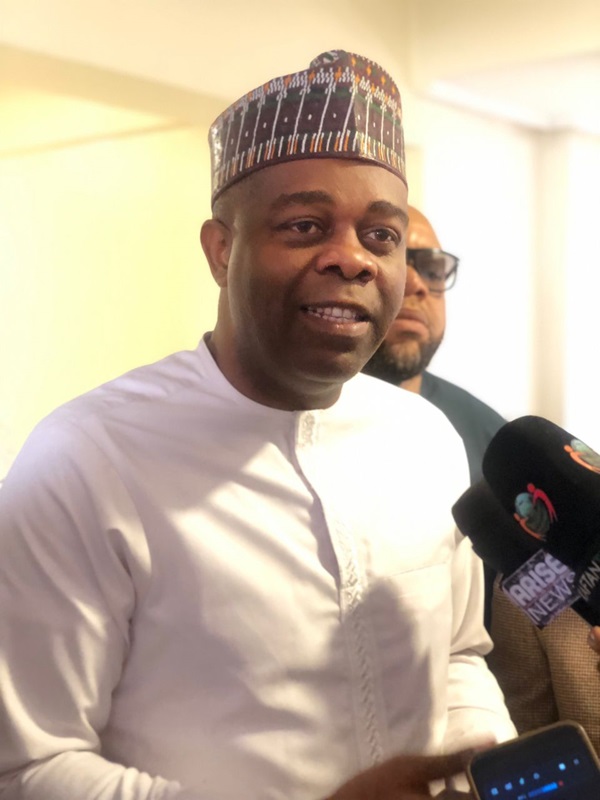
As the National Health Insurance Authority (NHIA) commemorates its 20th anniversary, the agency has called on private healthcare providers to partner more actively in building a patient-centred, accountable and resilient national health insurance system.
Speaking with journalists on Wednesday in Abuja, NHIA’s director-general, Dr Kelechi Ohiri said Nigeria stands at a pivotal moment in its journey towards sustainable health financing. While acknowledging progress, he emphasised that the country still has a long way to go in ensuring universal access to affordable healthcare.
“Universal Health Coverage (UHC) is not merely a policy ambition—it is a national imperative,” Ohiri stated. He reaffirmed the Authority’s commitment to broadening coverage, particularly through informal sector initiatives, leveraging technology to boost operational efficiency, enhancing service quality, and championing equity by targeting underserved populations.
For decades, Nigeria’s health insurance landscape was defined by low enrolment, especially within the vast informal sector. Millions of Nigerians continued to grapple with the choice between enduring illness or facing financial ruin in the pursuit of care. The tide began to turn with the signing of the NHIA Act in May 2022, which transitioned the National Health Insurance Scheme (NHIS) into the NHIA.
“This legislative reform signalled the dawn of a new era in health financing governance. It was a deliberate shift to breathe new life into the country’s universal health coverage agenda. It signified our resolve to ensure no Nigerian would suffer financial hardship for seeking healthcare,” he said.
Ohiri underscored that equitable access and financial protection are not only policy goals but critical human rights and investments in national development. “As NHIA steps into its third decade, our mission is clear – to ensure that every Nigerian, regardless of income, location, or social status, can access quality healthcare without the fear of being plunged into poverty,” he said.
Reflecting on achievements in the past year, he outlined several notable milestones. In 2024, over 600,000 new enrollees were added to the Basic Health Care Provision Fund (BHCPF), with special attention given to vulnerable populations. He also cited the launch of the Comprehensive Emergency Obstetric and Newborn Care (CEmONC) Programme in September 2024, which by March 2025 had processed 3,392 claims and delivered critical care to mothers and infants across Nigeria.
In the same period, more than 2,000 women benefited from a newly launched fistula intervention programme, with support from 17 centres across the country. A tariff review, conducted through extensive stakeholder consultations, resulted in updated capitation and service fee structures designed to incentivise quality care delivery. NHIA also resolved 2,900 beneficiary complaints in 2024, a testament to the improved responsiveness of its grievance redress system.
Another major improvement was the implementation of a one-hour pre-authorisation code issuance policy, which significantly reduced patient waiting times and enhanced overall user experience.
“These initiatives reflect a fundamental shift in our role – from being a passive payer to becoming an active market shaper,” Ohiri noted. “Our focus is now on strategic purchasing, equity, and quality to improve health outcomes.”
Despite these gains, he acknowledged that the success of NHIA’s mission will depend on continued collaboration, innovation, and commitment from all stakeholders. “Our progress over the past 20 years underscores the power of partnerships, creativity and resilience. But the next phase requires us to double down – strengthen quality assurance, deepen engagement with private providers, and ensure that the welfare of the Nigerian citizen is central to everything we do.”
Science Nigeria recalls that NHIA was established under the National Health Insurance Authority Act, signed into law on May 19, 2022, to replace the National Health Insurance Scheme Act of 1999. NHIA’s overarching goal is to achieve Universal Health Coverage in Nigeria by 2030 by ensuring financial access to quality healthcare for all citizens. It aims to mobilise resources for strategic service delivery through principles rooted in commitment, efficiency, accountability, transparency and equity.

